|
All the reasons why your startup ecosystem portal stucks and what you need to know to make the transition to a non-portal approach For many years, the Startup Commons team has been invited to take part in different RFP processes and projects to develop and implement startup ecosystem portals with the aim to help navigate ecosystem actors (startups, supporting providers, investors, corporates, mentors, etc) more effectively within the ecosystem, improving the connectivity among them and therefore removing barriers to help anyone get access to the different available resources within the ecosystem. And while we thanked the invitation, we decided to not participate in the majority of them due to misalignment with our own mission. We, as a company developing interoperability solutions for startup ecosystems, couldn't contribute to creating another silo. It is a matter of principles. When we properly evaluated each of those cases (we want to keep them anonymous for confidentiality reasons), we noticed that those RFPs and project requirements to build startup ecosystem portals had been poorly designed, targeting to develop portal solutions that were not reflecting the logic behind what startups and other actors need, and therefore contributing to a low impact for entrepreneurs and startups. Additionally, the RFPs and projects alike were fully misaligned with the direction the digital world is headed, with the technology, turning their back to the future evolution of the technology, developing short-term vision solutions with old techstack and technology architectures that will end up in inefficiencies or wasted resources. And what is most important, they became useless because information was outdated soon. Once those startup ecosystem portals were delivered, we proceeded to evaluate their real impact, finding the following problems: And while these portals became a good marketing tool to provide a good overview of many things, they simply failed in their efforts to serve the main purpose: help ecosystem users navigate within the ecosystem, giving them what they need at the right time. This bad user experience encouraged the Startup Commons team to dive deeper in this topic so you can learn more about the next generation of online startup ecosystem portals. We simply call it the Non-Portal approach. Building the startup ecosystem portal use case First of all, one fundamental thing to understand is that geographical startup ecosystems are very fragile to political changes, where prioritization and maintenance of the supporting infrastructures for innovation and entrepreneurship are often very likely to be politicized. When a new government enters into power, it is very likely that existing strategies, budgets, key people, processes, tools, data and history are at risk to be changed, where significant learning, knowledge and progress will be lost and many things again start from the scratch and therefore ecosystems simply get stuck in their development. Therefore, as a first step, and before any digital development, there should be specific dedicated neutral entity with mandate from all ecosystem key actors, proper resourcing and long term approach, looking at the needs of all sides and representing all the key segments of the ecosystem, to become a neutral custodian of common ecosystem infrastructure and a hub for common information and data sharing, with sole focus for looking at the benefit of the entire ecosystem as a whole. We call it an ecosystem operator. This ecosystem operator function is missing in the majority of the ecosystems, regardless of their maturity level. There are no sustainable resources defined for such setup, available for ongoing and long term data management and digital development efforts. And a typical reason for this is the lack of digital transition vision along with missing commitment to pursue it. Another related reason that is common in digital transition projects, is the typical separated relationship of “business” and “digital” teams, departments, or organizations. Where a more merged approach is needed for a team, where knowledge and expertise of both sides are embedded in one. Regarding the startup ecosystem portals, they are also well known under different terminology like startup ecosystem one-stop shop or startup hub. In any case, when you hear an ecosystem deploys a portal, if you’re like an entrepreneur it means you can do everything you need to do for your startup in a single location, getting access to digital services and information offered by different ecosystem actors to help you navigate within the ecosystem easier, faster and finding support for the challenges related to the different stages of the startup journey, from formation to growth. Entrepreneurs and startups are clearly in need of answers that are relevant to them and their unique circumstances. They are making decisions every single day. They come and go to different places and digital platforms to learn, connect, develop, sell, etc. They interact anytime, anywhere. If we think for a moment the amount of information that is demanded for entrepreneurs developing companies with all kinds of different business models, industries, strategies, people, etc, then it becomes clear that data is definitely a key asset that must be unlocked and properly managed. Therefore, with such reality, what should it be built to really help entrepreneurs, startups and other ecosystem actors? Let’s reflect back for a while to review and understand some past portal approaches in order to understand what to build for the present and future: The most basic portal - Yahoo! The first and most recognizable portal I remember is the original Yahoo!, which had a directory view, in which the same information was provided to everyone and “forcing” users to navigate to find the information they need. The Search Engine Approach Google is the maximum exponent for this approach, providing users direct answers based on the questions (search queries) they make, with additional effort of trying to match the results based on the profile they can have on the user (language, location, search history, etc.) Users come to get answers when they have first identified that they have a question and know how to formulate that question, i.e. know the right keywords to ask The Social Network Approach And more recently, we have the social network approach, with Facebook as the clear example, with its ability to distribute/target messages with great (questionable) accuracy to users where they already are based on their profile and patterns, regardless if they have already identified or formulated the question. With the previous references in mind, as a simple thought exercise, imagine an entrepreneur with a question that she/he can't even clearly formulate. Now imagine that via analogy of a medical condition and trying to find a useful answer via a portal with filtering type of intelligence without proper search. Now imagine being able to search via Google compared to that. It’s definitely better, but still far from what you would like to do, compared to if you could consult a real doctor with related subject matter expertise. And likely, you would definitely not want such sensitive information to be shared in Facebook to have such a public forum to collect your data and provide answers by drug companies or only commercial services that can afford to target you (pay for ads for you to pay for service you will get). But nevertheless the way you would like to get suggestions for actions to take would be optimal to get suggestions based on your profile without needing to know what to ask and whom. But naturally in such a way that you are not actually sharing your profile outside of your control and without being able to control what messages from who can even reach you (mute those that are not useful). That’s the kind of experience we are visualizing. Entrepreneurs and startups should get responses for their ventures based on their local context, history, profile, achieved milestones, etc. and even getting responses and services without the startup having to ask or request a specific service, simply because there is intelligence that tracks them based on the ecosystem interactions and startups progress. Considerations When considering solutions to cope with these challenges, we often see that key principles are missing or were not taken into account during the process to design the RFP/project. These principles are key in order to make sure that the collaborative and open nature of ecosystems is encapsulated by any solution that is implemented and deployed for the ecosystem, making sure that everyone is benefiting:
Transition to Non-Portal Approach While we understand that perfect solutions don’t exist, the points mentioned above are not inconsequential, being enough to flag them here so that can be taken into account for similar future initiatives and also find additional inspiration by some insights for improvements below:
Ecosystems have a long way to go to activate this digital transition for ecosystem orchestration but it is definitely the right approach. However the decisions should have been made five years ago. We just have to look at when other industries like finance, telecom, healthcare, transportation, etc. started and how they are unlocking innovative cross-functional solutions by enabling interoperability.
This is the big void we are covering with ecosystemOS and I believe this is where we can best be in the world, helping ecosystem builders and operators to design, develop and deploy use case driven technology solutions, step by step, to enable interoperability and information exchange within and between ecosystems to help them make quick, secure and efficient decisions. It's not Jules Verne's world. It is already happening. Reach out to us to find out how to start. Startup Commons - service by Digiole, a global leader in startup ecosystem interoperability, has partnered with the Sarawak Digital Economy Corporation (SDEC), a government-owned company, entrusted to lead the implementation of Sarawak’s digital economy. Under the terms of the agreement, both parties are working together to design, develop and deploy use case driven technology solutions to enable interoperability and information exchange within the Sarawak startup ecosystem and with other ecosystems globally. The ecosystem mapping application will be the first use case and application module in the ecosystemOS data infrastructure to be implemented to aggregate and distribute ecosystem information in a standardized format, keeping updated and standardized inventory of the existing supporting services and related support organizations information available in the Sarawak ecosystem and assisting to create more logical and effective relationships between services and therefore an improved journey experience for the startups. Using Digiole’s unique expertise in the intersection of innovation, entrepreneurship and digital, SDEC will be able to work towards future growth goals, ensuring the foundational layer to scale its operations, enable collaboration with Sarawak ecosystem actors, achieve efficiencies in the ecosystem workflow as well as global interoperability with other ecosystems. Valto Loikkanen, Senior Advisor & Cofounder at Digiole, said, "We're honored to partner with SDEC, taking the global leadership on deploying the first scalable solution for startup ecosystem orchestration. We're happy to lend our ecosystem interoperability expertise, handling complex back-end connectivity to enable ecosystem intelligence in the long term and allowing SDEC to focus their resources on their important mission to build a stronger startup ecosystem for Sarawak”. To learn more about startup ecosystem interoperability capabilities, visit ecosystemos.com, contact Digiole CEO [email protected], or call +358 50 553 3554. To schedule a meeting in advance, click here. About Digiole Digiole is a Helsinki-based tech company providing world leading digital interoperability solutions for industries to enable ecosystem business models. In the innovation entrepreneurship landscape, backed by 10+ years of experience providing innovation entrepreneurship ecosystem development consulting and training services to 30+ ecosystems globally, Digiole solutions connect ecosystem actors, platforms and data, building ecosystem interoperability and to make it work in an affordable and sustainable way. About SDEC Sarawak Digital Economy Corporation Berhad (SDEC) is a company that is wholly owned by the State Government of Sarawak under the purview of the Ministry of Finance and Economic Planning to spearhead Sarawak’s digital economy initiatives and transform Sarawak into a Digital Economy Powerhouse. Established in January 2018 its main objectives are to revolutionize Sarawak’s economy and industries as well as to spur socioeconomic growth and advancement.
Startup ecosystems are filled with multiple digital and in-person touchpoints to bring help for entrepreneurs and startups. Behind the scenes, removing obstacles and creating a better startup journey experience within the ecosystem, is the ecosystem mapping app and its capacity to be interoperable with other systems. It’s through interoperability that startup ecosystems will begin to break down their silos, use open standards to harmonize their fragmented and incompatible systems and data sharing, and achieve better outcomes. Here's seven aspects that make Startup Commons ecosystem mapping app different to other approaches:
Ready to unlock interoperability in your startup ecosystem? The startup ecosystem interoperability space is unique and it is a long term journey that never stops. Ecosystem operators need a stable technological partner to help them navigate the complexity of ecosystem interoperability. This partner should:
Take a simple first step with Startup Commons and start finding the answers to your ecosystem challenges. A good public funding model starts with an ecosystem framework If you are an economic development financier driving innovation and entrepreneurship, one of the crucial aspects is to maximize the impact of the public funding flowing within the ecosystem. It is assumed that they have a great understanding about the startup journey and that they have accurate data and information to support their decisions towards implementation. The reality is quite different. And we, as entrepreneurs, know that assumption is the mother of all mistakes, in one form or another. Only things that can be understood, can be developed. Here's a process followed by many ecosystems with different size and maturity levels that helps, among other things, minimize the mismatch in the public funding: 1.- Understand the startup journey, from "idea to product, to growing business" and from "talent to team, to real organization" in balanced manner 2.- Understand the key focus area from ecosystem perspective 3.- Understand the service targets that are needed to support startups in their different phases. Services in the ecosystem should focus on:
4.- Understand the balance between public and private support. The balance between public services or publicly funded support providers tend to focus in earlier phases, while private and for-profit type of service providers are focusing on later phases of the journey, where the business is starting to have more clarity, shape and ability to pay more for these services. 5.- Map your ecosystem to identify what the current services are, how they are related, their dependencies and the missing ones 6.- Based on your data, decide in which area you want to impact
7.- Collect standardised KPIs related to startups progress and contributing factors; service intake, output, efficiency & feedback; and outcome of ecosystem development actions Following the process above can help you separate your assumptions from your decision-making and to implement what is really needed vs what is trendy. This process is what we recommend to use for all decisions related to startup ecosystem development, and it becomes more powerful the more it is adopted among the different ecosystem actors.
And, when things don't turn out how you hoped they would, then you should evaluate how the decision was made. There might be different reasons but lack of data and resources are usually behind them. If you have questions about applying the ecosystem framework, want more examples of how it was implemented, or you even want to propose improvements, please reach out: info at startupcommons.org Coordinate your startup ecosystem with Ecosystem Mapping App, a short demoEcosystem Mapping App is the first 'Application Module' of EcosystemOS - a digital service for startup ecosystems to aggregate and distribute ecosystem information in a standardized format, with the main goal to help maintain the best and most accurate information for startups, support organizations, governmental entities and other ecosystem stakeholders and to provide ecosystem intelligence help them make quick, secure and efficient decisions. Watch this five minute demonstration and see how Ecosystem Mapping App helps startup ecosystems to find their gaps with holistic view, standardised information and interoperability. Ready to get started?Starting Q2 this year - As an ecosystem representative, your ecosystem can apply to Join our global alliance membership. This will enable you to start deploying EcosystemOS Mapping App in your local ecosystem(s), to enable data flow within and between ecosystems via globally shared needs within ecosystems.
As a member of the alliance your ecosystem can also be part of contributors and/or governance parties of the global open standards, for innovation entrepreneurship ecosystem builders, operators, architects and developers globally. Benefits of the alliance Nobody can develop open standards alone, yet transparent open (non-proprietary) standards are needed to enable true interoperability within and between ecosystems, especially in areas like;
As we are finalizing the work to publish the 2022 Alliance Program details, you can check out the 2021 collaborative ecosystem development project call for more information about the established foundation that the 2022 program is based on. Together, cheaper and faster! Few things are as important as common understanding and definitions. Without knowing exactly what specific terms mean, and how they apply to given situations, little discourse startup or ecosystems development can take place. In developing startups and startup ecosystems, there are still many terms that are misunderstood or misused. There's no standardised definition of what is a startup. Wherever we work, whoever we ask, entrepreneurs, support organisations, investors, governmental entities, etc. have their own understanding and definition of the startup term, what makes difficult to develop any ecosystem. Here's a definition based on the startup development phases you can use in your local context in case you are still missing it. It was defined with the main goal to make it as complete, global and neutral as possible: “A Startup is a team of entrepreneurial talent developing new innovations, in identifiable and investable form, in progress to validate and capture the value of the created innovation - with ambition to grow fast with scalable business model for maximum impact.” And then, use that definition combined with the evaluation tool below to assess the potential of any startup in your ecosystem: Wondering how the whole ecosystem can adopt it and become a standard? Get to know more here
We are launching the year with focus on Ecosystem Mapping App - a central piece of ecosystem interoperability, that brings about new meaning, context, and ecosystem insights through a combination of multiple diverse sources of data. 2022 We’re feeling energized. Over the last year, we’ve implemented some big changes, grown our team and set strong foundations, to complete our transition towards a fully digital company serving innovation entrepreneurship ecosystem builders. With focus on data-driven solutions, we help to bring the answers to the questions that matter for ecosystem development in a more efficient, accurate and scalable way. Ecosystem Mapping App The ecosystem mapping activity is at the core of any ecosystem and we are excited to update our global network of ecosystem builders. Based on the foundation that your primary data, data distribution and defining data sharing rights, should always remain in local hands, controlled by the rightful owners depending on the data in question, from the very beginning to long-term. Ecosystem mapping application is currently available as customised implementation with APIs first - approach, to give you more ownership about the solution, more control of your ecosystem data. The more control over the data and digital tools the ecosystem developers and operators have, the better are the quality, accuracy and value of that data is. And so are all are related ecosystem applications, analysis, measurements, forecasting, decisions and planning, utilizing it towards developing, accelerating and growing the ecosystem. It’s 2022 and if managing ecosystem data and distribution of it beyond manual efforts is not in your plans for ecosystem development, you have already fallen behind. You’re essentially missing out on the answers that you need to effectively support entrepreneurs, startups and innovation in general and, most importantly, you are wasting your always limited ecosystem development resources and opportunities, around the data that already exists in your ecosystem, but it's simply not utilised properly.
Make managing your ecosystem data a priority for 2022, a year of the Tiger. We know it may not feel easy, but that's why we are here to help you as a globally neutral actor, looking forward to helping you tackle your challenges one by one, "sitting with you on the same side of the table". Find out why this must-attend webinar is for ecosystem builders like you What could you get if your weekly startup ecosystem events were more effective and accurate attracting the right audience? Experienced ecosystem builders know: when you attract the right people in the events, you truly enable magic among them. To learn how technology can contribute to make this happen, register to the ecosystemOS protolab webinar. What will you get in this webinar?
This webinar is designed to bring our global community of ecosystem builders together and point them toward their next steps on the automation journey for startup ecosystem development. We will cover:
Ready to transform your ecosystem so you have more time to do what matters? Join us at ecosystemOS protolab webinar to enable automation and intelligence in your ecosystem to develop and orchestrate it faster and smarter. Feel free to contact us ([email protected]) in advance with your questions/suggestions. Don't miss this session out and book your place! Get to know the Startup Commons' 2021-2022 Internship Program, how it will benefit you and how you can apply. At Startup Commons, we work for innovation and entrepreneurship to contribute to the growth in economic development and society prosperity by building digital solutions that never ever were thought. We can only achieve it by working with highly motivated people that are hungry to learn fast and grow working with complex challenges and as part of an international and ‘Digital first’ working environment. This is our obsession and we are making a continuous global call to the daring minds from universities all around the globe. In this webinar, we presented the Startup Commons Global Internship Program 2021-2022, the type of talents we are looking for, the roles, the criteria that are relevant for us, the benefits working with us and how you can take part on it.
Startup Development Phase Case Study - Startup Calgary, inside the Canadian start-up ecosystem24/8/2021 Willis Tat, Coordinator, Marketing at Platform Calgary, supporting entrepreneurs ecosystem. What kind of services do you offer in your organization? Startup Calgary supports entrepreneurs reshaping Calgary. We grow and strengthen our startup community by facilitating collisions of diverse people, ideas and skills. To help ideation and conception stage entrepreneurs, we offer community events, programs, workshops and advice. This includes Startup Essentials, Startup Drinks & Pitches, Launch Party and various other networking and event opportunities, many of which can be found in our Community Events Calendar. What makes your organization unique? We have a deep connection with the local startup community that can’t be replicated. Through our advisors, program coordinators and events, we are always creating a more interconnected community while also showcasing the great things happening in the Calgary ecosystem. We love sharing the triumphs and successes of entrepreneurs who have completed our programming, with success stories others can read here. The Calgary startup founders are always willing to lend a hand to other founders--even those who would be considered their competition. Fostering this culture of openness and collaboration is important for us; we work hard to ensure everyone with a good idea and an entrepreneurial vision is welcome at Startup Calgary. As part of Platform Calgary (especially as we move into the public space of the Platform Innovation Centre), that value of accessibility to the innovation ecosystem is front and centre. What has been your biggest challenges this past years? And how did you solve it? Certainly, everyone has struggled with adapting to a global pandemic and how it changed the way we connected with each other. For an organization that is based on creating connections between startup founders, advisors, and other resources, we discovered we needed to pivot quickly. This meant moving events and resources online as quickly as possible and exploring new technology that can simulate the experience of being in a room with people you may not know and having meaningful collisions in the process. These tools may not be a perfect replacement for the in-person experiences we host, but they will now be a good option to supplement our programming in a post-pandemic world. In a city where the growth of our tech sector has largely happened under the radar, it can be difficult to build awareness about our startup community and all the partners and resources available to help entrepreneurs. To increase awareness about available resources, and to encourage connections within the community, we revamped the community events calendar to amplify opportunities for networking and professional and personal development. Each year, our signature event--Launch Party--invites the whole city to learn about and celebrate the best of our startup community. It continues to be an important way to share the story about our growing tech community as it becomes a key part of our city’s economic future. What do you see being your biggest challenges in the future? Calgary is in the midst of transitioning its narrative from that of an oil and gas town to a more diversified economy. While that real transition has been happening for some time, the story Calgarians tell about ourselves is still catching up to reality. It is also a story that is more nuanced and inclusive than a simple change from one industry to another. It is important that we continue to work at telling the stories of our startup-driven innovation economy. In doing so, we will reframe the way Calgarians view ourselves and our collective future. Startup Calgary, Platform Calgary, our partners and the rest of the ecosystem have a significant role to play in this narrative--in addition to actively creating new businesses, new jobs, and diversifying our economy. Any implementation you intend to keep from this pandemic time? With the Startup Calgary team merging with the Platform Calgary team earlier this year, we are expanding our reach and providing more Calgary entrepreneurs with the tools they need to succeed. Our digital presence has become stronger over the course of the last year with online events and programming. As communities start opening up, we will provide high quality digital experiences in addition to our successful in-person programming. We are excited to be providing these experiences in our new space and Calgary’s new home for innovators: Platform Innovation Centre opening fall 2021. Why did you choose to use the startup ecosystem development phase tool? The Startup Commons phase tool provides a shareable common language for our entire innovation ecosystem. It allows accelerators and service providers to understand how to better serve startups, and it helps us to make the right connections to startups based on the size and stage of the company. It is a powerful tool supporting even better collaboration within our ecosystem. What could we add to offer you a better service? The Startup Commons model is relatively linear and straightforward, however that is rarely the case for the entrepreneurial journey. As entrepreneurs, you don’t simply jump from -2 to -1 to 0--sometimes you stay stuck at 1 then go back to -2. And that’s okay. Acknowledging that less linear pathway can reaffirm for startup founders that they are on the right path for them. What would you tell someone considering using our framework? The framework is an excellent tool for entrepreneurs and ecosystem builders alike. It really helps you understand where you are, as an entrepreneur, and where you need to go next. For ecosystem builders, it helps us identify how we can help entrepreneurs and which resources they may need next. This is an originally posted by Benoit Watteyne. You are free to re-edit and repost this in your own blog or other use under Creative Commons Attribution 3.0 License terms, by giving credit with a link to www.startupcommons.org and the original post
|
Supporting startup ecosystem development, from entrepreneurship education, to consulting to digital infrastructure for connecting, measuring and international benchmarking.
Subscribe for updates
Startup ecosystem development updates with news, tips and case studies from cities around the world. Join Us?Are you interested to join our global venture to help develop startup ecosystems around the world?
Learn more... Archives
December 2023
Categories
All
|
||||||
- Startup Commons
- Business Creators
-
Support Providers
- About Support Providers
- Learn About Startup Ecosystem
- Startup Development Phases
- Providing Support Functions
- Innovation Entrepreneurship Education
- Innovation Entrepreneurship Curriculum
- Growth Academy eLearning Platform
- Certified Trainers
- Become Growth Academy Provider In Your Ecosystem
- Growth Academy Training On-Site By Startup Commons
-
Ecosystem Development
- About Ecosystem Developers
- What Is Startup Ecosystem
- Ecosystem Development
- Ecosystem Development Academy eLearning Platform
- Subscribe to Support Membership
- Ecosystem Operators
- Development Funding
- For Development Financiers
- Startup Ecosystem Maturity
- Case Studies
- Submit Marketplace App Challenge
- Become Ecosystem Operator
- Digital Transformation
- Contact Us
- Startup Commons
- Business Creators
-
Support Providers
- About Support Providers
- Learn About Startup Ecosystem
- Startup Development Phases
- Providing Support Functions
- Innovation Entrepreneurship Education
- Innovation Entrepreneurship Curriculum
- Growth Academy eLearning Platform
- Certified Trainers
- Become Growth Academy Provider In Your Ecosystem
- Growth Academy Training On-Site By Startup Commons
-
Ecosystem Development
- About Ecosystem Developers
- What Is Startup Ecosystem
- Ecosystem Development
- Ecosystem Development Academy eLearning Platform
- Subscribe to Support Membership
- Ecosystem Operators
- Development Funding
- For Development Financiers
- Startup Ecosystem Maturity
- Case Studies
- Submit Marketplace App Challenge
- Become Ecosystem Operator
- Digital Transformation
- Contact Us

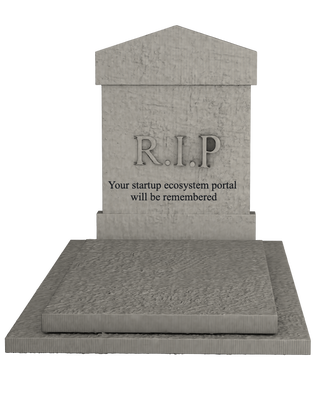
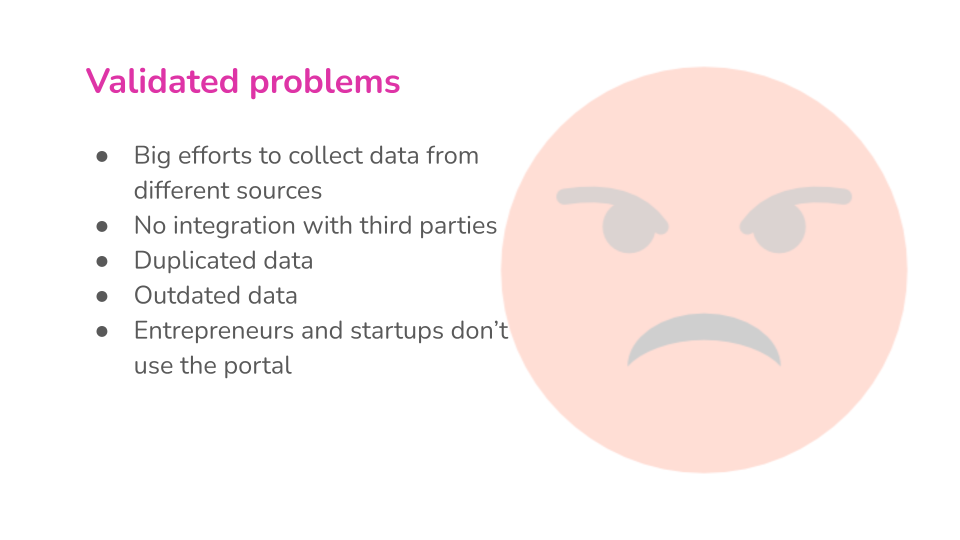
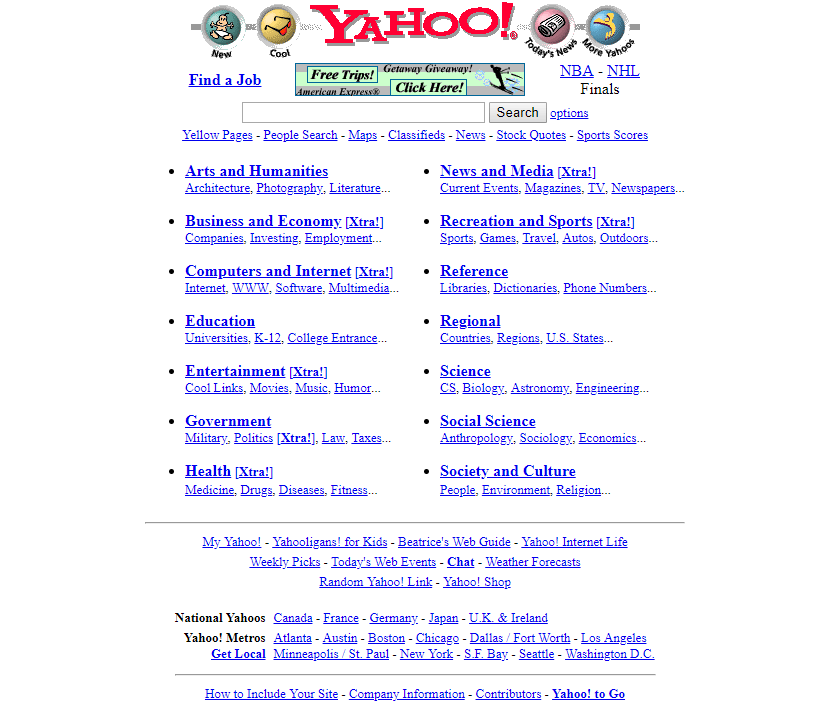
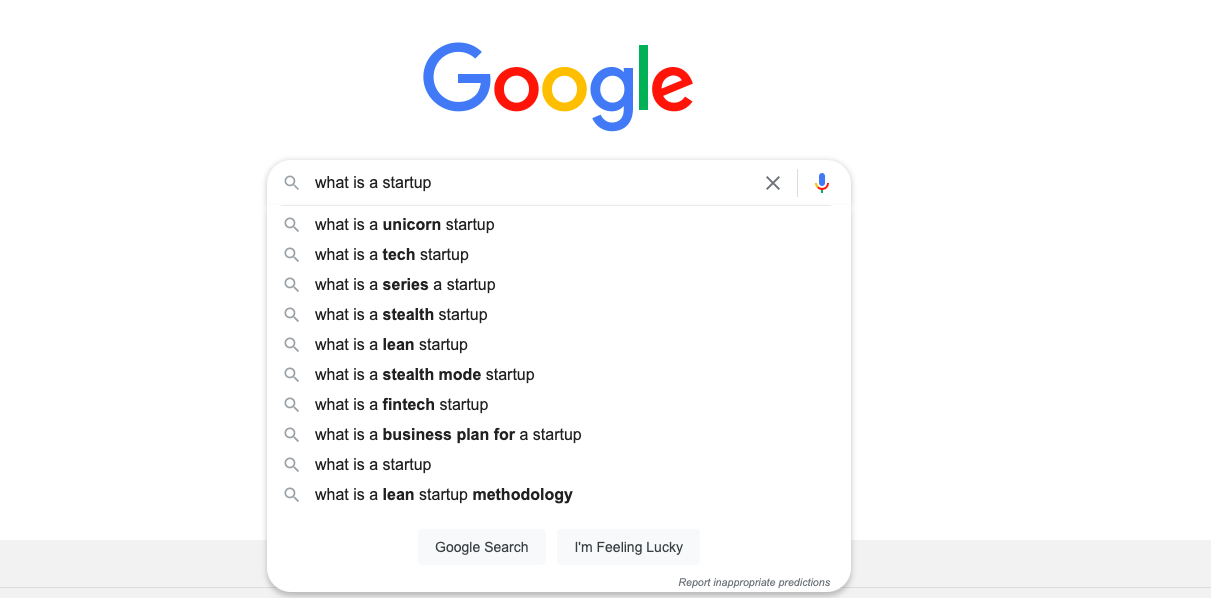

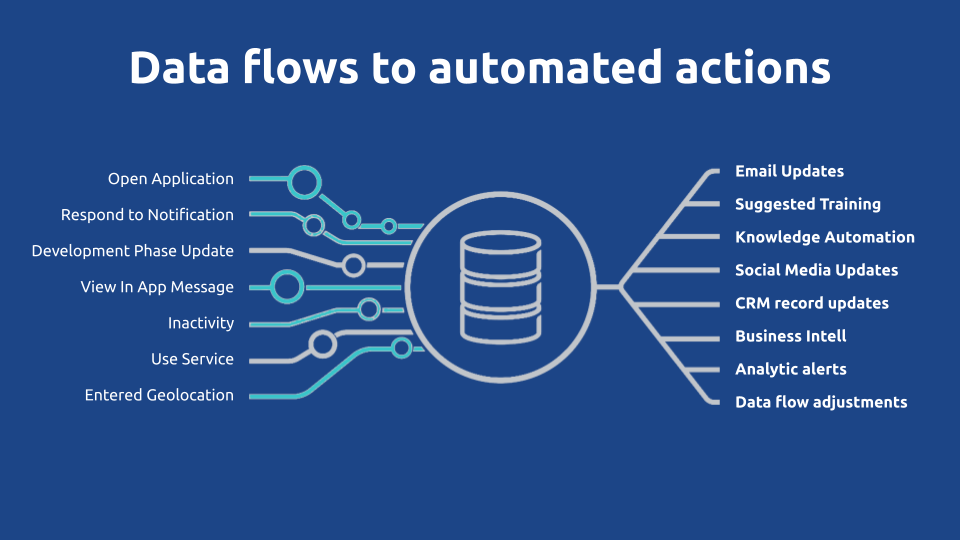
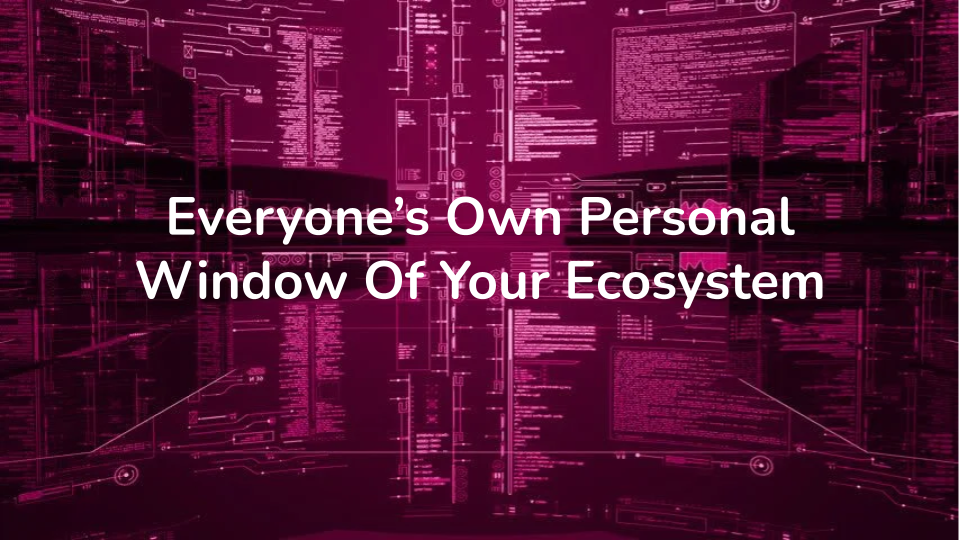




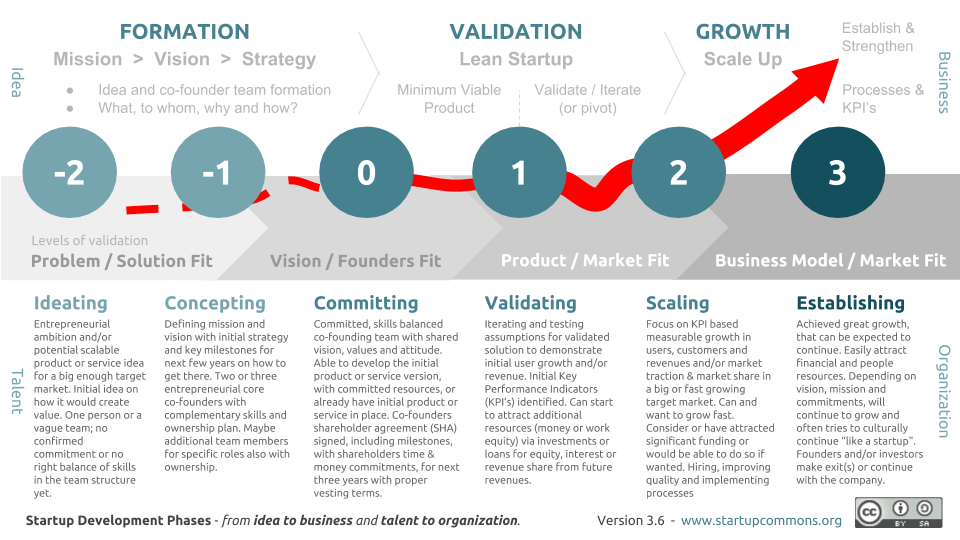
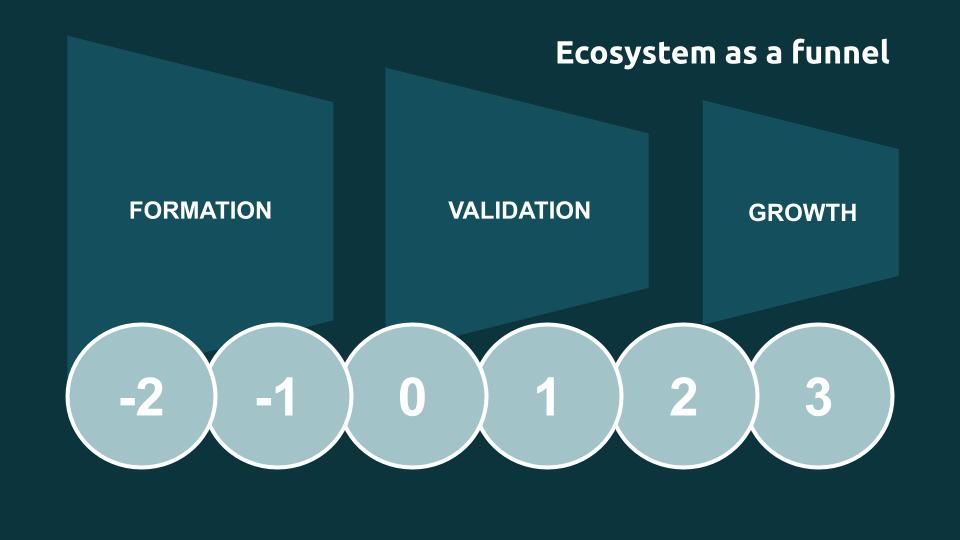
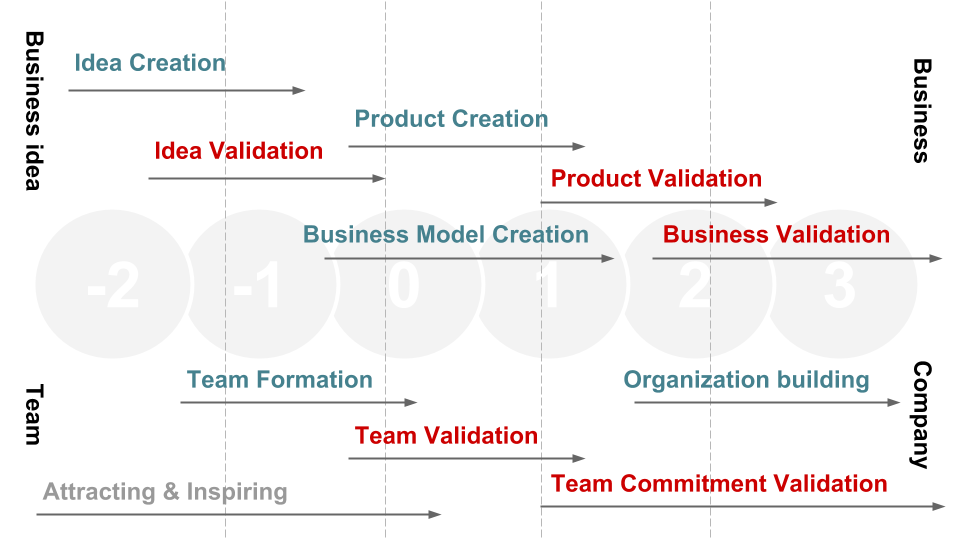
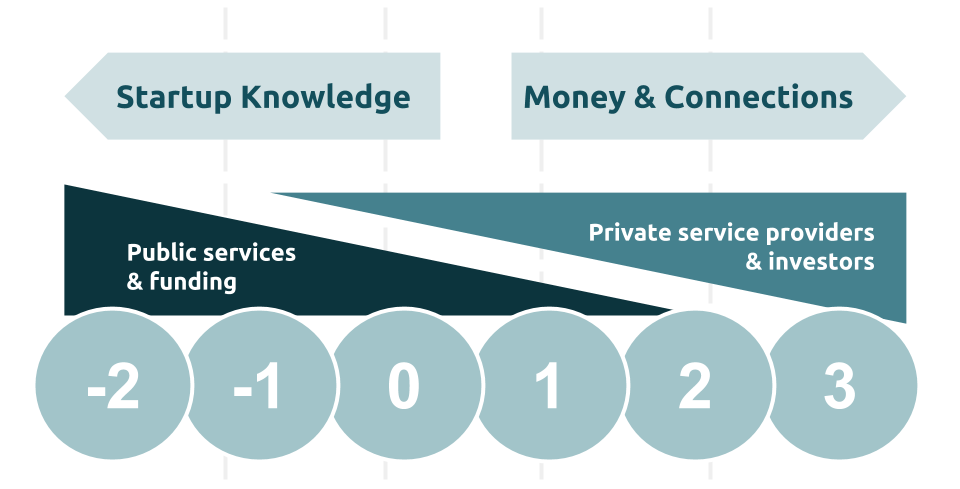
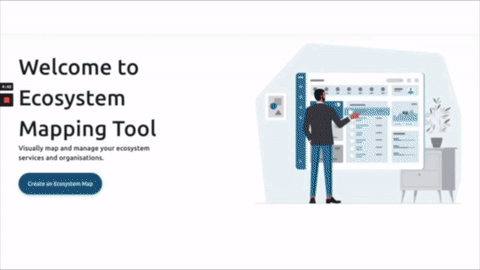
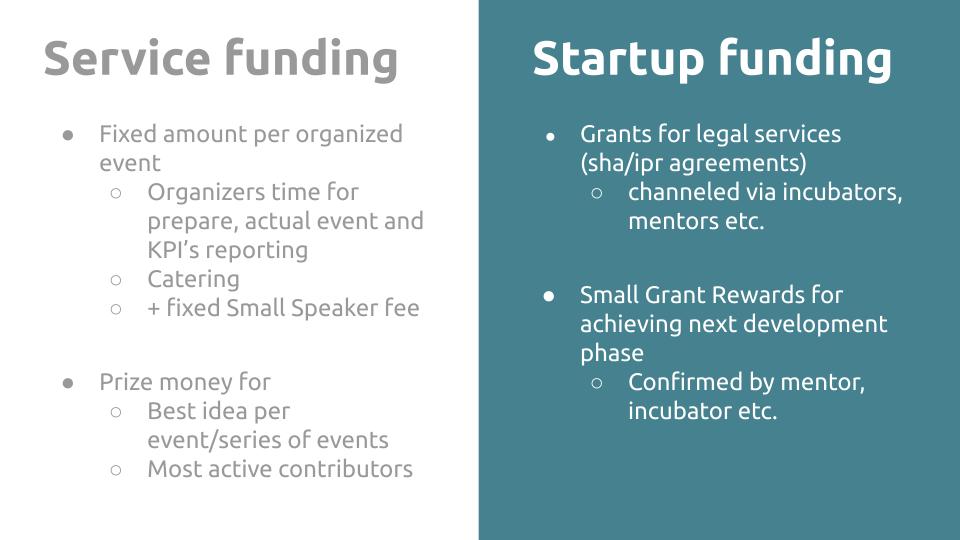
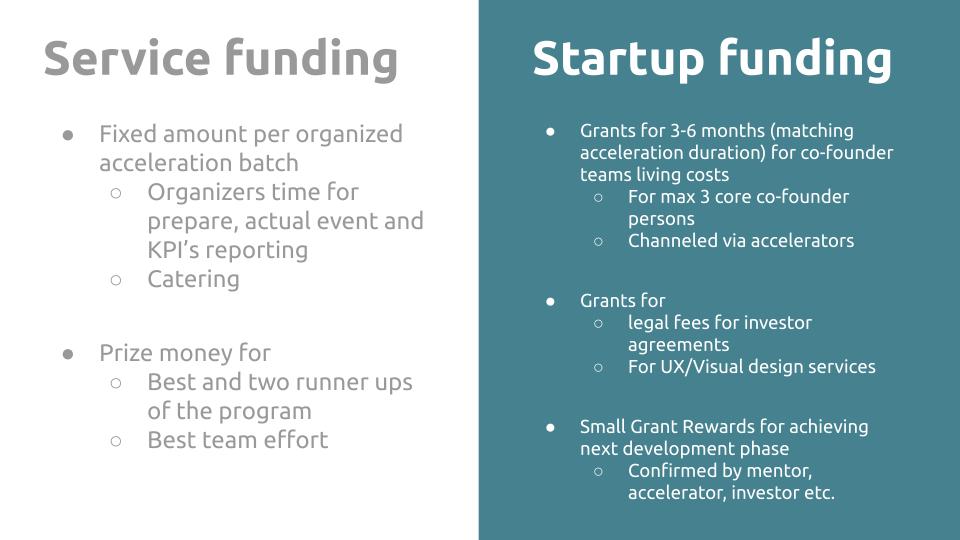
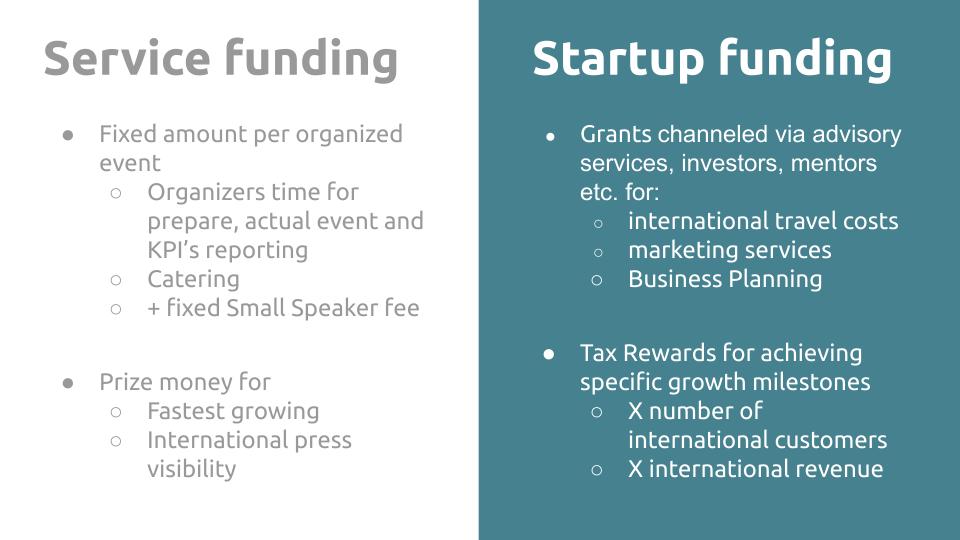
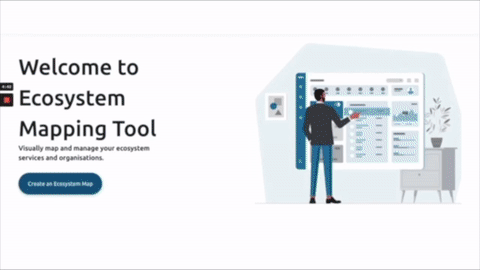
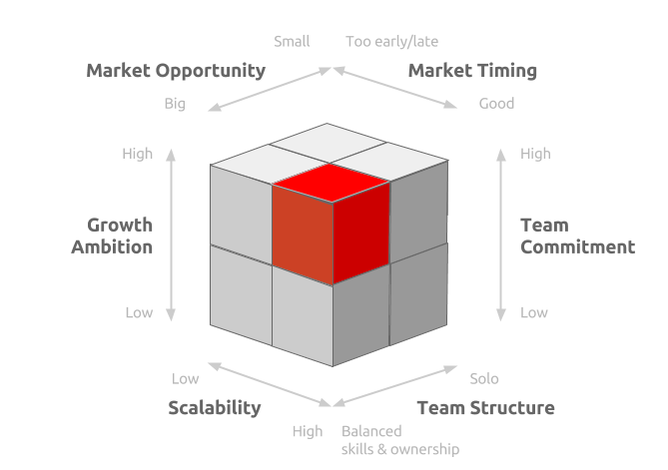
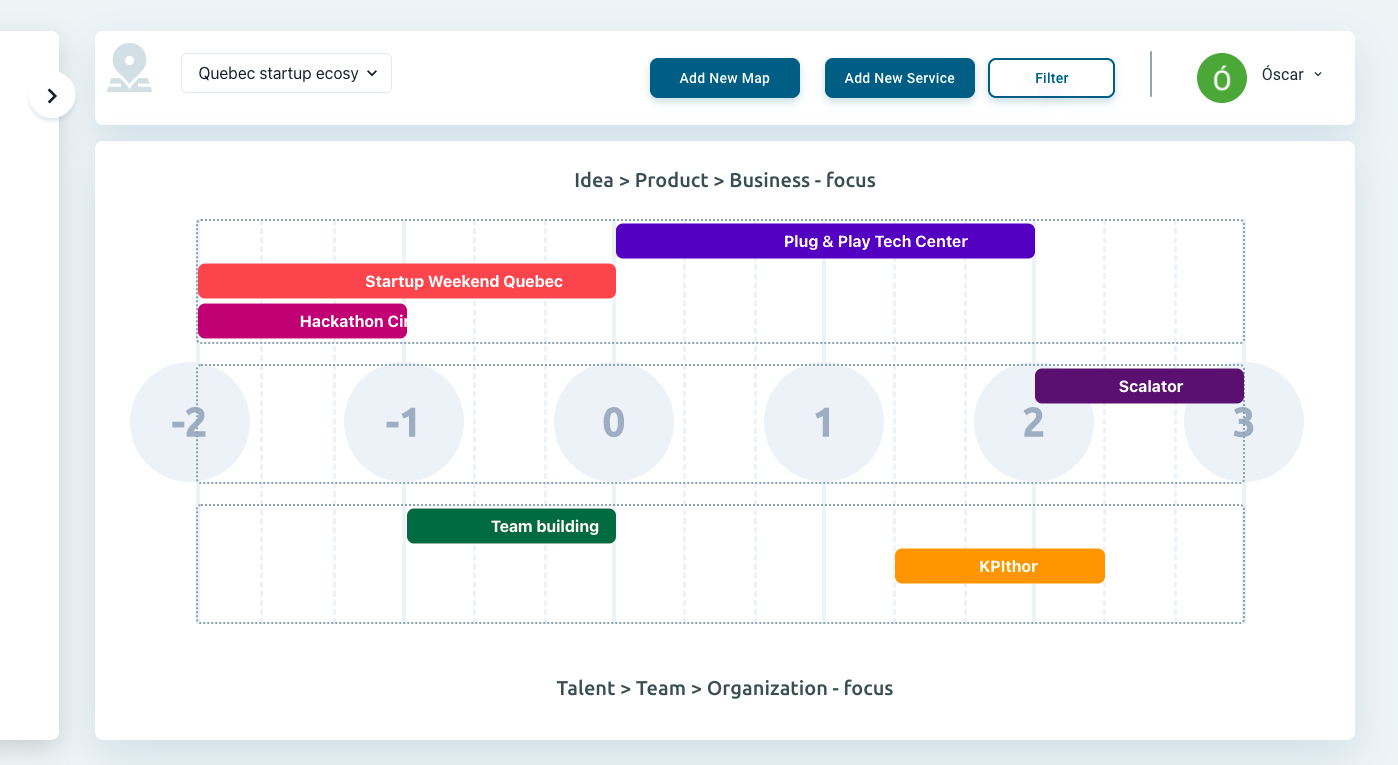
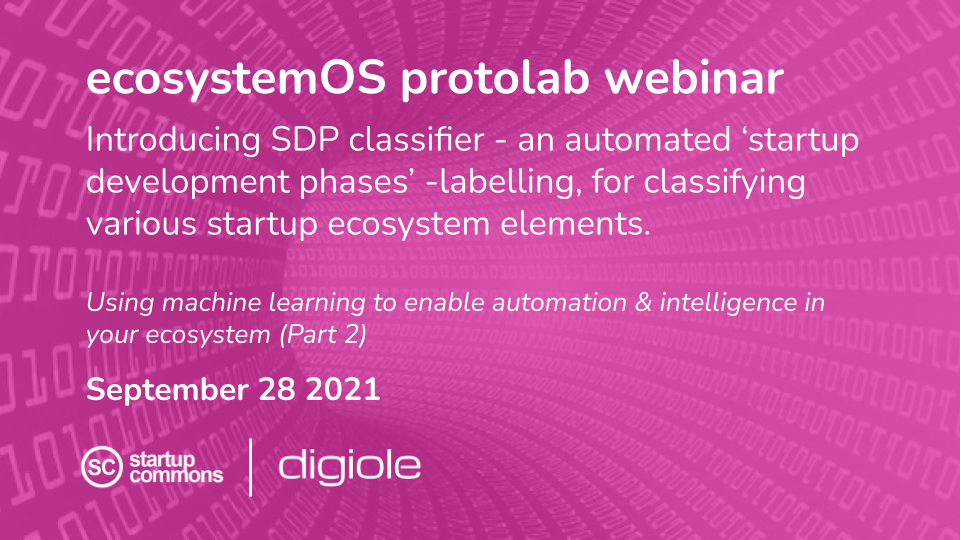
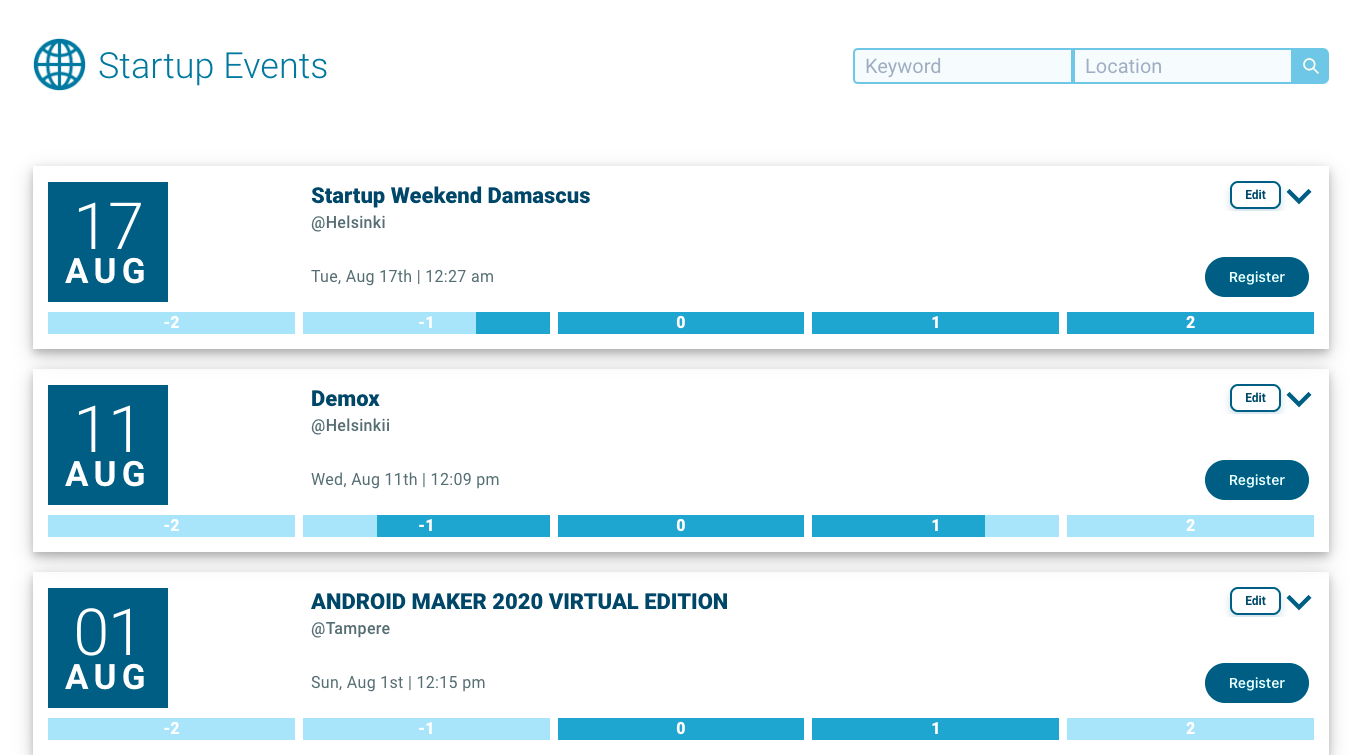
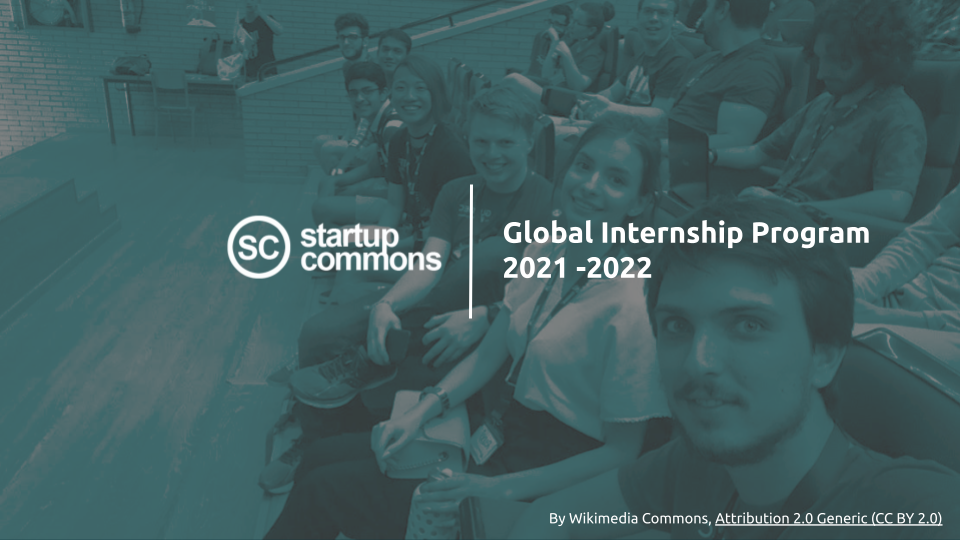
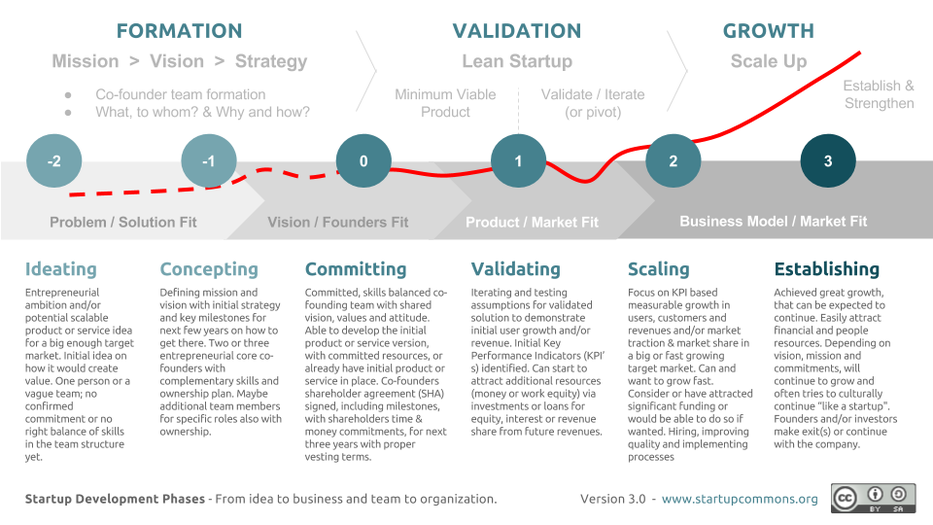

 RSS Feed
RSS Feed

